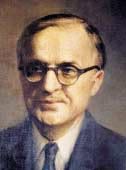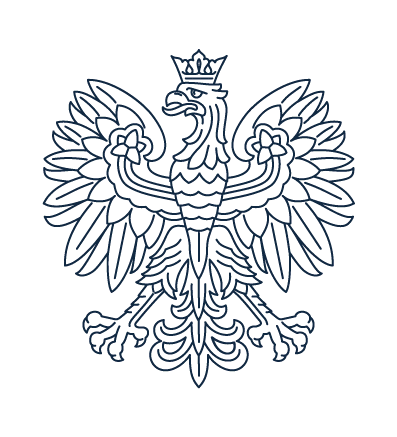Bronisław Rutkowski 1955-1964
 b Komaje (Vilnius district) 27 February 1898, d Leipzig 1 June 1964
b Komaje (Vilnius district) 27 February 1898, d Leipzig 1 June 1964
Rector of the PWSM (1955-64)
Organist, teacher, critic, columnist and organizer of musical life
Studied music in Petersburg with J. Handschin, W. Kalafati and J. Vitols. Later studied Polish philology at the Vilnius University. A student of M. Surzyński at the Warsaw Conservatory, of L. Vierne at Schola Cantorum in Paris, as well as a student at Paris Sorbonne. He took part in the Polish – Bolshevik war, honoured with Virtuti Militari Cross 5th class (1921). Began his pedagogical work in the interwar period, holding higher course classes at the Warsaw Conservatory, where among his students were: J. Chwedczuk, S. Możdżonek, F. Rączkowski. At that time Rutkowski began his cooperation with Polish Radio, which fully developed during the postwar period. He was the founder and chairman of the Society of Early Music Enthusiasts, as well as of the Holiday Music Centre of Krzemieniecki Lyceum. As a propagator of native music he established the Polish Music Publishing Society. At that time he already stressed the importance of “liturgical service” as important part of young organists’ educational process. For several years he was the organist of St. John’s Metropolitan Cathedral in Warsaw.
During the occupation period he led the Music Section of the Home Army Headquarters Propaganda Department. After the war he settled in Kraków, where in 1946 he began pedagogical activity at PWSM. His most outstanding students were: J. Jargoń, J. Grubich, G. Mryka and J. Serafin. Because of his activity focusing on organ music he was called “Polish Albert Schweitzer” (M. Wallek-Walewski). Up to this day he is regarded as undoubted “Father of modern Polish organ school”, which – understood as performance practice – had been practically non existent before. In many of his statements he expressed regret over the fact that (even during the postwar period) early music was regarded first of all as a form of exercise and that it was denied artistic values as – supposedly – expressively unattractive; with this attitude he contributed to a large extent to the renaissance of Baroque music in modern times. According to him “church music [remained in Poland] a synonym of bad style, ignorance and amateurism”; to oppose this state of affairs, he contrasted it with the situation in the West: much more optimistic and supported by centuries-long tradition. He was an indefatigable organizer of musical life – as a columnist and editor of Ruch Muzyczny and as an author of innumerable radio programmes. During his tenure the school became reorganized: seven departments were brought into existence, including Intercollegiate Organ Department (of national scope), with Bronisław Rutkowski as its director. The law passed in 1962 leveled PWSM with other non-artistic higher schools, granting it full academic rights, which was emphasized by the Rector many times during his addresses on the occasion of the 75th anniversary of the School.
Sudden death in dramatic circumstances (1 June 1964 in St. Thomas Church in Leipzig, during the rehearsals for the Bach Competition, practically at the tomb of the Leipzig Cantor) interrupted his titanic work for Polish organ performance practice, for the Kraków School, and for the artistic milieu of the country. S. Kisielewski wrote: “I knew him for thirty six years – over one third of a century – and always everything he did seemed normal, simple, obvious. Only after his death I suddenly realized, how enormous a blank in our musical life will be created by this death, how enormous an amount of work, energy, inventiveness he put in various activities of his life, how much the musical culture of our times, and not only musical, Polish culture in general is indebted to him.”
For his activity he was honoured with the Commander’s Cross of the Order of Polonia Restituta (1958) and with the Artistic Prize of the City of Kraków (1960).
Dariusz Bąkowski-Kois






